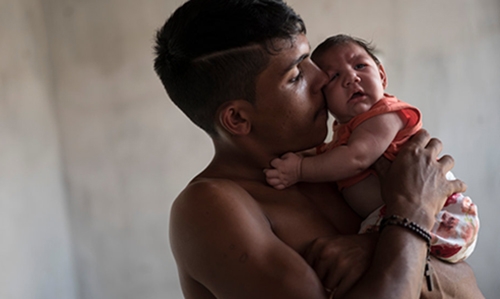Zika virus alert: Women told to delay pregnancy for two years
With Latin America on high alert due increasing cases of Zika virus, countries are taking necessary precautions to avoid the outbreak, the most common of them being: advising women not to conceive for two years.
Public health officials in El Salvador advised women to delay pregnancy for the next two years to prevent children from developing birth defects from the mosquito-borne Zika virus.
Eduardo Espinoza, the country's vice-minister of public health, said on Thursday that women who were already pregnant should stay covered outdoors to reduce the risk of mosquito bites.
"We'd like to suggest to all the women of fertile age that they take steps to plan their pregnancies, and avoid getting pregnant between this year and next," he said.
The government reportedly decided to make the announcement after 5,397 cases of the Zika virus were detected in El Salvador in 2015 and the first few days of this year, Espinoza said.
Official figures show 96 pregnant women were suspected of having contracted the virus, but so far none has had babies born with microcephaly, or abnormally small heads, which the disease can cause.
In Colombia, which has the second-highest Zika infection rate after Brazil, the government is also advising women to delay becoming pregnant, but only for six to eight months.
According to an article in the New York Times, pregnant women were advised not to travel to Latin American and Carribean countries, as a precaution from contracting the Zika virus.
Vaccine hopes
Brazilian president Dilma Rousseff said on Thursday that researchers were working with domestic and foreign laboratories to try to develop a vaccine for the Zika and dengue viruses.
The Zika virus is transmitted by Aedes species mosquitoes, which also spread dengue and chikungunya viruses. Zika causes a mild illness with fever, rash, joint pain and conjunctivitis, with symptoms usually lasting under a week.
But in pregnant women, the virus can spread to the foetus and cause microcephaly - a condition involving brain shrinkage that severely limits a child's intellectual and physical development - or death.
Brazil has been the hardest hit, documenting more than 3,500 cases of microcephaly between October 2015 and January 2016
Health experts are unsure why the virus, which was first detected in Africa in 1947 but unknown in the Americas until last year, is spreading so rapidly in Brazil and neighbouring countries.
Last week, the United States warned pregnant women to avoid travelling to 14 countries and territories in the Caribbean and Latin America due to the virus.
The level two travel alert applies to Brazil, Colombia, El Salvador, French Guiana, Guatemala, Haiti, Honduras, Martinique, Mexico, Panama, Paraguay, Suriname, Venezuela and Puerto Rico.
Related Posts

